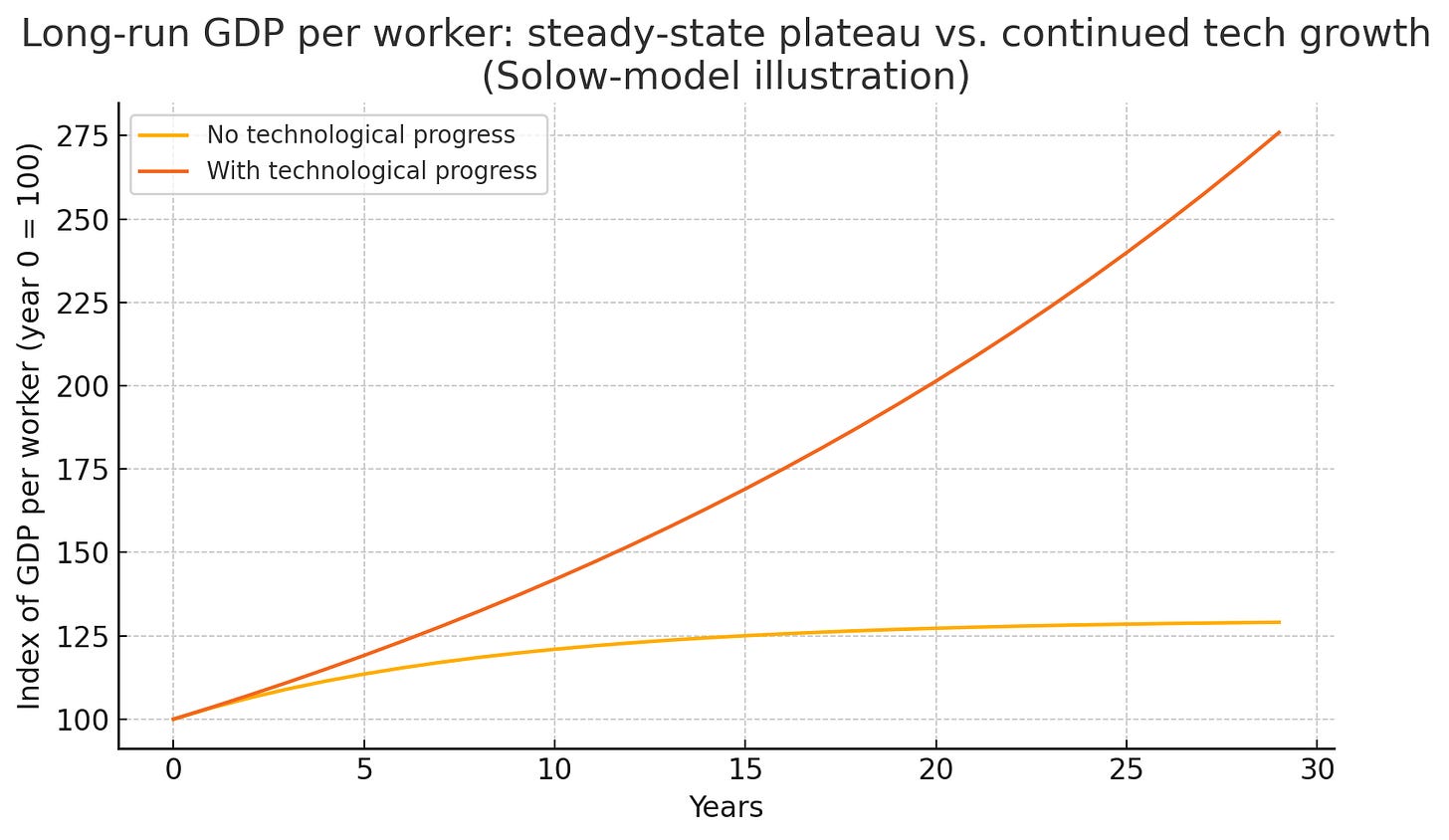Progress isn't automatic
It takes considerable effort, education, organization, and money
Everyone living today has lived in a world where science and technology, globally, have progressed at a relatively high rate compared to earlier times in human history. For most of human history, a random individual could expect to use roughly the same technology in one decade that they did the previous decade. That’s obviously not the case today.
In fact, most of us alive today have little to no personal experience with such a degree of technological stagnation. That’s a good thing because long-term technological stagnation puts an upper bound on possible increases in our collective standard of living.
From an earlier post:
[W]ithout new technology, our economic prosperity is fundamentally limited. To see that, suppose no breakthroughs occur from this moment onward; we get no new technology based on no new science. Once we max out the hours we can work, the education people will seek, and the efficiency with existing technology, then what? We’d be literally stuck. Fundamentally, if you don’t have new tools, new technology, new scientific breakthroughs, you stagnate.
That is, standard of living is fundamentally a function of labor productivity. To improve your standard of living, you need to make more money so you can buy better things, like housing, healthcare, leisure, etc. Once you get the best education you can, and maximize your hours, you are then limited in how much you can make based on how much you can produce, your output. How do you increase your output? Through better technology. At an economy-wide level, therefore, if we’re not introducing new technology, we will eventually hit a maximum output level we cannot push beyond.
This is a counterintuitive and profound conclusion that I think gets overlooked because we take technological progression for granted. Science and technology don’t just progress on their own. There were many periods in history where they essentially completely stagnated in parts of the world. That’s because it takes considerable effort, education, organization, and money to advance science and technology. Without enough of any one of those ingredients, it doesn’t happen.
And, if technological progression can go slower, perhaps it could also go faster, by better attuning the level of effort, education, organization, and money. For example, I’ve been arguing in this blog that the political debate now around science funding has an incredible amount of status quo bias embedded in it. I believe reducing funding will certainly slow us down, but I also believe science funding was already way too low, perhaps 3X below optimal levels.
Put another way, I think a primary goal of government and society should be to increase our collective standard of living. You simply can’t do that long-term without technological progression.
A couple of quick critiques I may tackle more in-depth in the future. Some people are worried that we’re just producing more stuff for the sake of producing more stuff, and that’s not really increasing the standard of living. First, with technological progression, the stuff gets both better and cheaper, and that is meaningful, for example, take medicines. Better medicines mean better health spans, and cheaper medicines mean more access to medicine. Second, people buy things, for the most part, on their own free will, and maybe people do want more stuff, and that’s not a bad thing in and of itself, as long as we can control for the negative externalities. Third, controlling for those negative externalities, like combating climate change effectively, actually requires new science and technology.
Another common critique is that technology causes problems, for example, privacy problems. As someone who started a privacy-focused company, I’ve been holding this position for decades and continue to do so. But we shouldn’t throw the baby out with the bathwater. We need to do a more effective job regulating technology without slowing down its progression.



Very interested in the two critiques and looking forward to the future posts.